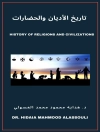In ‚Auricular Confession and Popish Nunneries, ‚ William Hogan delves into the contentious practices of confessional rites and the nunneries of the Catholic Church, unraveling the complexities and spiritual nuances that underpin these institutions. With a critical yet analytical literary style, Hogan employs a historical lens to scrutinize the ecclesiastical traditions that shaped 19th-century attitudes toward confession and the role of women in religious cloisters. His work is firmly situated within the anti-Catholic discourse of the period, as Hogan deftly navigates between personal narratives, theological debates, and sociopolitical implications, inviting readers to critically engage with the broader ramifications of confession and convent life in a rapidly changing world. William Hogan was an influential voice in the post-Reformation era, often troubled by the implications of Catholic practices on personal faith and societal structure. His background in both theology and social critique fuels his exploration in this text, as he draws upon contemporaneous fears and misconceptions surrounding the Catholic Church. Hogan’s works were informed by his own experiences and observations of religious life, as well as the growing Protestant sentiment that characterized his milieu. ‚Auricular Confession and Popish Nunneries‘ is essential reading for historians, theologians, and social scientists alike. It provides an intricate portrait of the intersection between individual spirituality and institutional authority, challenging readers to reflect on the power dynamics at play within religious practice. Hogan’s compelling narrative encourages a nuanced understanding of faith and social structures, making it a pivotal contribution to religious studies.
Über den Autor
William Hogan is a somewhat elusive figure in the annals of literature concerning religious discourse and critique, primarily known for his contentious work ‚Auricular Confession and Popish Nunneries.‘ His literary efforts are contained within the sphere of religious scrutiny and institutional examination, particularly focusing on the practices of the Roman Catholic Church. Although not much is known about Hogan’s life beyond his writing, his book on auricular confession – the act of confessing sins to a priest – and the examination of convent life, provides an intense critique that reflects a period where religious institutions were often questioned and debated. His style, which combines direct observation with a confrontational stance, suggests a background of personal engagement with the subjects he discusses, and possibly a deep-seated drive to provoke reform or at least awareness. ‚Auricular Confession and Popish Nunneries‘ remains a pivotal text for those studying anti-Catholic sentiment of the era, as Hogan’s work is indicative of the broader socio-political tensions surrounding religious practice and the authority of the church during his time. His book, though not widely recognized in the mainstream literary canon, has nonetheless carved a niche for itself amongst scholars interested in the intersection of religion, society, and personal conviction.




